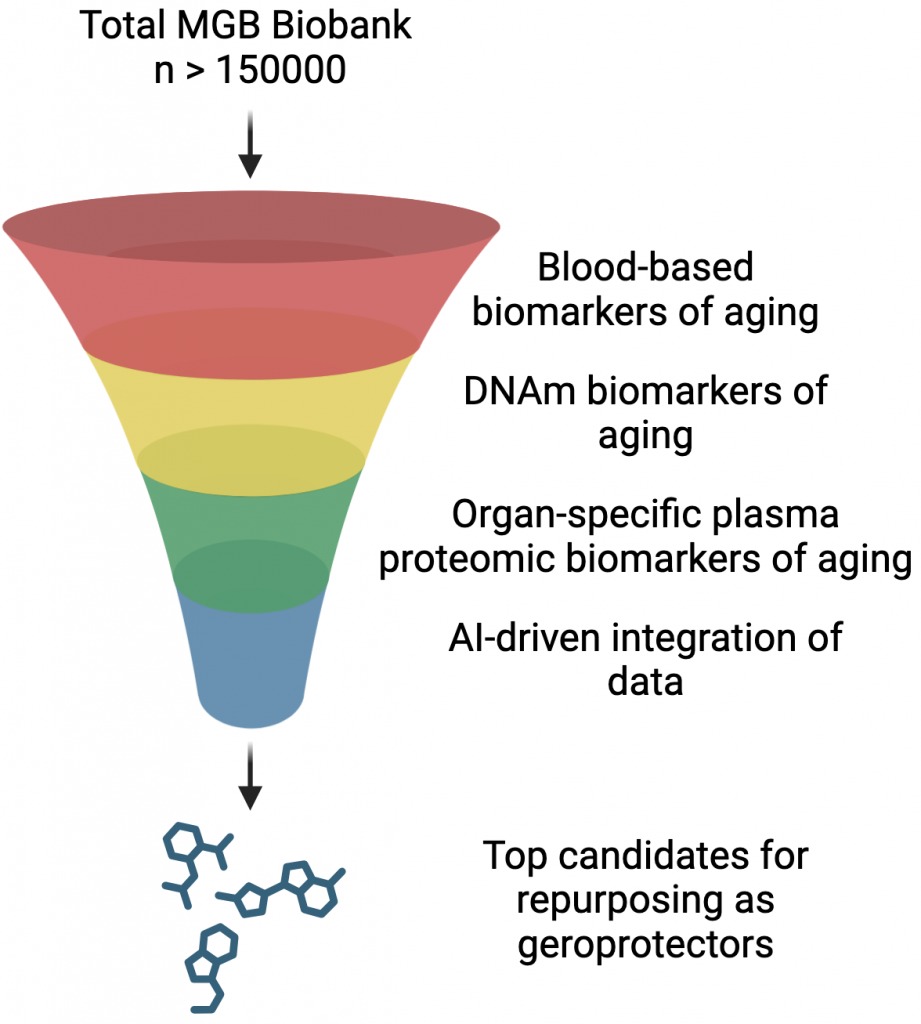Investigators:
Jesse Poganik, Brigham and Women’s Hospital
MassAITC Cohort: Year 5 (Aging)

Initial Proposal Abstract: Age remains the primary risk factor for cardiovascular disease, cancer, neurodegenerative disorders, and metabolic dysfunction, creating an urgent need for interventions that target fundamental aging processes. This project employs artificial intelligence to systematically identify and validate geroprotective effects in currently prescribed medications by analyzing extensive clinical data from the Mass General Brigham Biobank. Our analytical pipeline integrates advanced machine learning models with multiple aging biomarkers, including blood-based measures, DNA methylation patterns, and plasma protein profiles, to provide robust assessment of biological aging across different organ systems.
We will analyze medication histories and clinical laboratory data from biobank participants using machine learning algorithms to identify drugs associated with reduced biological age. Our approach implements sophisticated patient matching algorithms to create well-balanced comparison cohorts and employs recurrent neural networks and temporal convolutional networks to capture longitudinal patterns in medication use and aging trajectories. We will calculate established blood-based aging biomarkers from routine clinical measurements. For the most promising candidates, we will then validate geroprotective effects through multi-omic profiling of DNA methylation and plasma proteomics. Our approach includes custom neural networks for multi-modal data integration and graph neural networks that leverage protein-protein interaction data, alongside explainable AI architectures to provide mechanistic insights into biological pathways mediating geroprotective effects.
This drug repurposing strategy offers substantial advantages by identifying effects directly in real-world clinical populations rather than model systems, significantly reducing the time and cost associated with traditional drug development. The computational frameworks developed through this pilot will create reusable tools applicable to other biobanks and healthcare systems, establishing a scalable methodology for ongoing discovery of interventions to promote healthy aging. We anticipate identifying and validating several medications with robust evidence of geroprotective effects and establishing a foundation for future clinical validation studies that could benefit millions of individuals worldwide.
